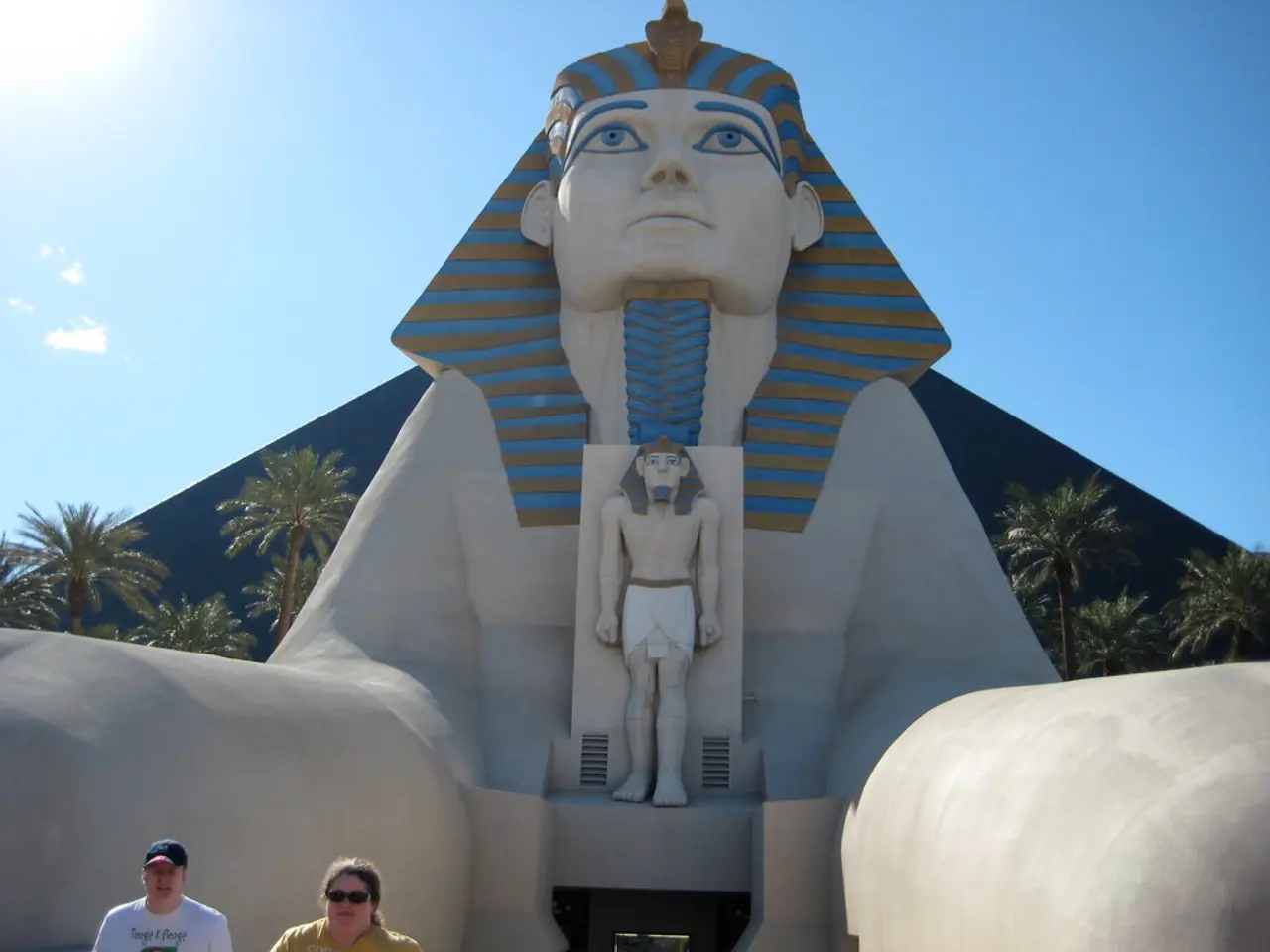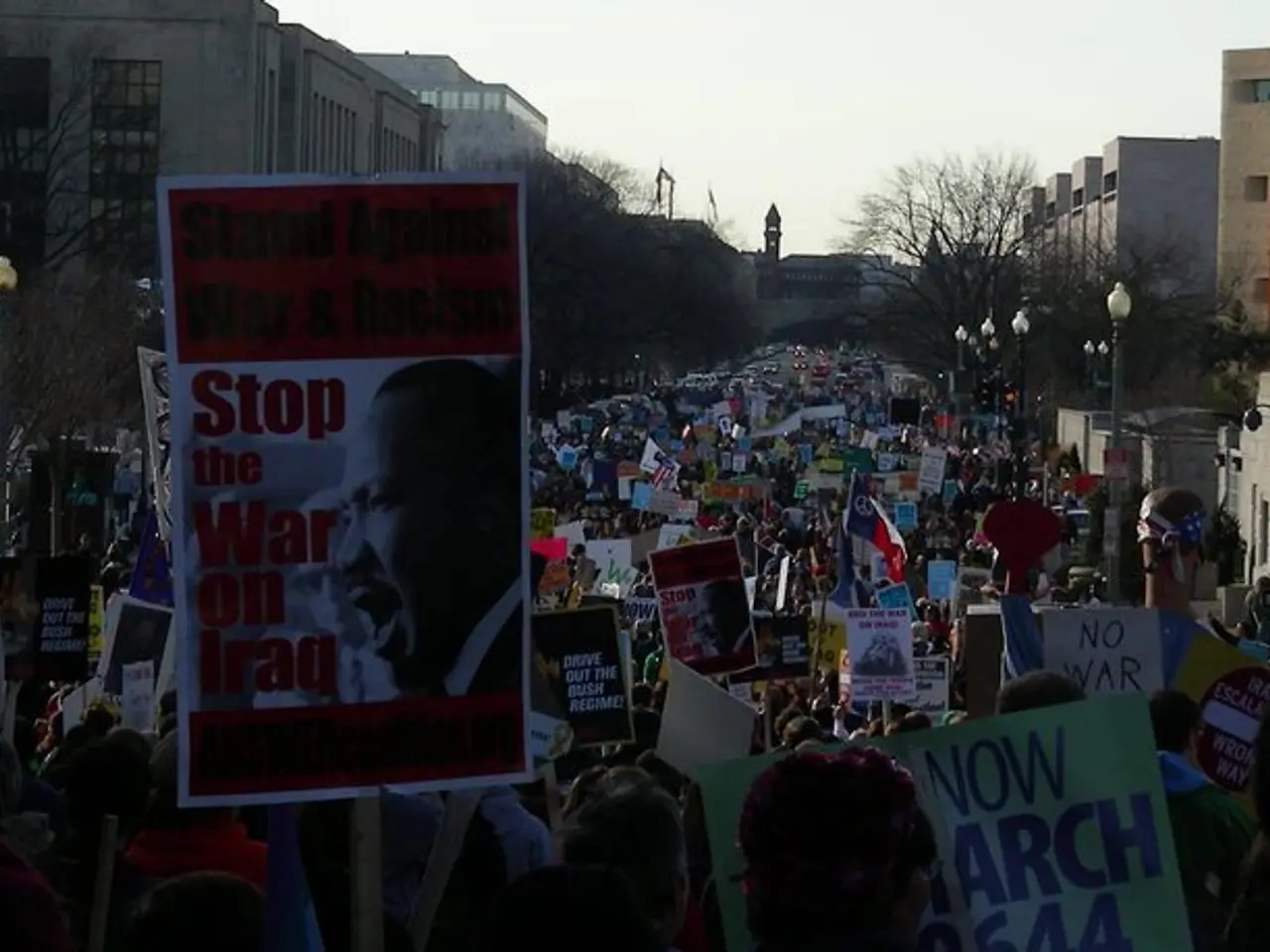Egyptian leader criticizes Israel for alleged military seizure strategy of Gaza Strip
In a controversial move, Israel has approved plans for a temporary military takeover of Gaza City, with the operation contingent on ceasefire efforts failing and potentially commencing around October 7, 2025 [1][2]. This limited operation, however, has raised concerns both domestically and internationally, as many fear it could escalate into a broader and more permanent military occupation.
Israel's plan, focusing on Gaza City, comes two years after the start of the current war [1]. The international community, particularly the United Nations and human rights entities, has been sharply critical of the move. The UN Human Rights Chief has called for an immediate halt to Israel's plans, warning of the severe humanitarian impact and the dangers of escalation [3][4]. UN Secretary-General António Guterres described such a move as "a dangerous escalation" that risks worsening the conflict significantly [3].
Within Israel, tens of thousands of protesters have gathered, demanding an end to the war, reflecting domestic opposition to the ongoing military measures [2]. Some Israeli ministers express skepticism about the Prime Minister's plan and desire for the war's outcome [1].
For Palestinians, the plan threatens further displacement and humanitarian crisis. Aid groups warn of starvation and severe suffering, with many fearing the military takeover could lead to long-term control or annexation, potentially amounting to ethnic cleansing [2].
The situation in Gaza has left its 2.3 million Palestinians on the brink of famine due to Israel's blockade [5]. Egypt, Qatar, and the United States have conducted negotiations to stop the war, deliver aid, and secure the release of Israeli hostages [6]. Egyptian President Abdel Fattah El-Sisi has strongly criticized Israel for considering a complete military takeover of Gaza [7].
History, according to Mr. Sisi, will hold many countries accountable for their stance on the war in Gaza [8]. The peace treaty between Egypt and Israel, signed in 1979 despite stiff opposition in the Arab region, had significant repercussions. The 1993 Oslo accords and the normalization of ties between Israel and several Arab nations, including the Emirati, Bahraini, and Moroccan, were influenced by Egypt's treaty [9].
As negotiations reach a point of "bankruptcy," according to Mr. Sisi, the global human conscience, as per Mr. Sisi, will not remain silent for long regarding the war in Gaza [10]. The alliance's headquarters were moved from Cairo to Tunisia following the treaty's signing [11]. The peace treaty between Egypt and Israel marked a turning point in the region, but the current situation in Gaza raises concerns of a potential return to conflict and humanitarian crisis.
Politics and general news are abuzz with discussions over Israel's controversial plan to temporarily take over Gaza City, as fears of war-and-conflicts escalation persist. The United Nations, human rights entities, and international leaders have shown alarm at the prospect of Israel's military action, concerned about its potential long-term consequences and devastating humanitarian impacts.




